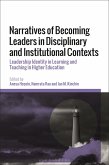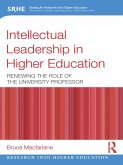What is the future of the contemporary university and for those who lead them?
Considering leadership in the broadest sense, including academic leadership (teaching and research) as well as leadership practices of those in formal management positions, Jill Blackmore outlines how multiple pressures on universities have produced leadership practices in management and research which are more corporate than collegial, and which discourage many academics from aspiring to leadership. She uses a range of theoretical tools, informed by critical and feminist organisational studies, to unpack higher education and how it is being transformed in ways that undermine its core work of teaching and research. Drawing from three Australian university case studies, this book uses leadership as a lens through which to investigate the effects of restructuring of the higher education sector which have impacted differently on academic identities and careers.
Considering leadership in the broadest sense, including academic leadership (teaching and research) as well as leadership practices of those in formal management positions, Jill Blackmore outlines how multiple pressures on universities have produced leadership practices in management and research which are more corporate than collegial, and which discourage many academics from aspiring to leadership. She uses a range of theoretical tools, informed by critical and feminist organisational studies, to unpack higher education and how it is being transformed in ways that undermine its core work of teaching and research. Drawing from three Australian university case studies, this book uses leadership as a lens through which to investigate the effects of restructuring of the higher education sector which have impacted differently on academic identities and careers.









